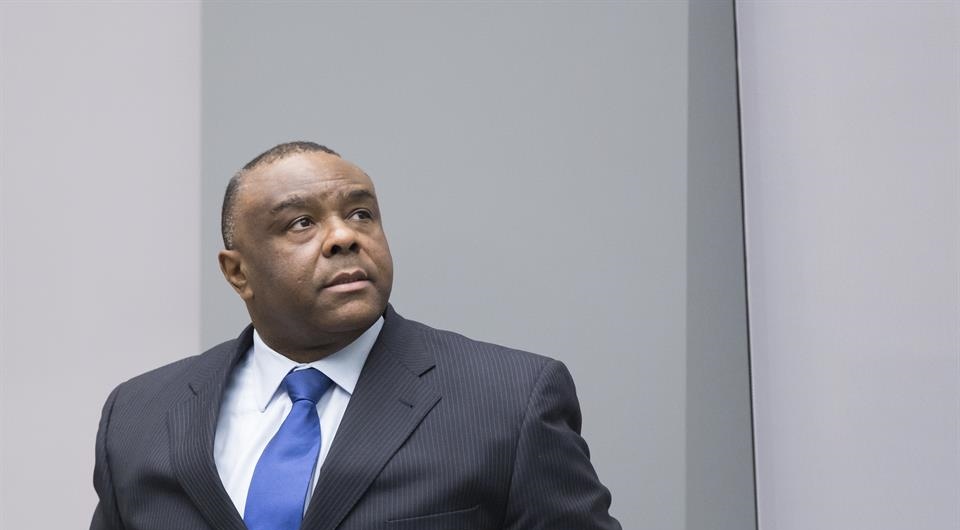Congolese politician acquitted of war crimes
June 13, 2018 | Expert Insights

Former Vice President of the Democratic Republic of Congo, Jean-Pierre Bemba, has been acquitted of war crimes after the International Criminal Court reversed its earlier ruling. In 2016, the Court had ruled that Bemba was guilty via “command responsibility” for the crimes committed by his troops in the Central African Republic.
Background
The Democratic Republic of Congo was colonized by Belgium from 1908 to 1960. Conflict and violence has played a major role in the existence of the DRC. After independence, it was left unstable because tribal leaders had more power than the central government. The First Congo War (1996-1997), was a foreign invasion led by Rwanda, which replaced President Mobutu Sésé Seko with the rebel leader Laurent-Désiré Kabila. The Second Congo War began in August 1998 after the Rwandan genocide of 1994. The war officially ended in July 2003, however violence in the region has continued.
The country’s mineral wealth and economic resources have fuelled violence further as malicious players have tried to get their hands on the nation’s riches. Various groups have taken advantage of the anarchy to plunder natural resources. Violence is stoked by ethnic divisions. A large UN peacekeeping force has been established in the east of the nation in order to keep the militia under control.
Jean-Pierre Bemba
Jean-Pierre Bemba, born in DRC in 1962, was the son of a successful businessman. In 1998, Bemba launched his Movement for the Liberation of Congo (MLC), a rebel group. Bemba also sent his militia into the neighbouring Central African Republic (CAR) in 2002, at the request of then-President Ange-Felix Patasse. His troops were accused of war crimes including rape and murder of civilians. In 2003, Bemba became Vice President under the DRC peace deal. He received the second-highest number of votes in the 2006 Presidential elections.
Following clashes between his bodyguards and the national army in Kinshasa, Bemba fled to Belgium, where he was arrested on a warrant by the International Criminal Court in 2008. In 2016, Bemba had been charged with three war crimes (murder, rape, and pillaging), and two crimes against humanity (murder and rape), committed under his command in the Central African Republic between October 2002 and March 2003. Bemba was sentenced to 18 years of prison.
Later that year he filed an appeal claiming that the court’s conclusion that Bemba had maintained control over his troops after crossing the border was incorrect. He also complained that crucial evidence in his defense had been ignored.
Analysis
The International Criminal Court has overthrown its previous ruling that Jean-Pierre Bemba was guilty of war crimes and crimes against humanity. The Appeals Court stated that Bemba could not be held responsible for the crimes committed by his Congolese Liberation Movement (MLC). The Appeals Chamber ruled 3 to 2 to acquit Bemba. The court said that the previous ruling had “erroneously convicted Bemba for specific criminal acts that were outside the scope of the charges as confirmed.”
“The trial chamber erred in its evaluation of Bemba’s motivation and the measures that he could have taken in light of the limitations he faced in investigating and prosecuting crimes as a remote commander sending troops to a foreign country,” the court added, noting that its analysis of Bemba’s role in the incident had been incorrect. Bemba had been a “remote commander” and faced “logistical difficulties.”
The 2016 ruling was the first time the ICC had convinced someone of using sexual violence as a weapon of war. The ruling was also notable due to conviction on the basis of “command control.” Command control means that the person who has effective control of an organisation “can be found guilty of crimes committed by subordinates if he or she orders the crimes to be committed, or if he or she fails to prevent or punish such crimes,” according to the International Justice Monitor.
Bemba is also facing charges for bribing a witness. He has been freed from custody to await sentencing, which will take place on July 4th.
“The decision to acquit Jean-Pierre Bemba Gombo is an important reminder that international justice is only possible if all suspects receive stringently fair trials before an independent and impartial judiciary,” Solomon Sacco, Head of the International Justice team at Amnesty International said. He noted that the decision “will be felt as a huge blow for the many victims of the ‘war against women’ waged in the Central African Republic (CAR).” The organisation noted that “5229 survivors” of the atrocities had participated in the ICC proceedings.
Fatou Bensouda, chief prosecutor at the ICC, called the decision “troubling”. “Today’s judgement does not deny that Mr Bemba’s troops committed the crimes which resulted in great suffering in the Central African Republic at their hands,” she said. “The carnage and suffering caused by those crimes were very real, and they are recognised.”
Assessment
Our assessment is that the 2016 judgement on command responsibility and sexual violence as a weapon of war was a landmark ruling. The most recent development in the case could influence other war crime tribunals deliberating similar issues. We believe that the ICC is a crucial body that prevents impunity from international crimes against humanity. However, in this case, it has played a limited role in addressing broader human rights issues. For his part, Bemba could potentially return to the DRC, where he has a strong support base, and re-enter politics.
Read more: Congo in crisis








Comments